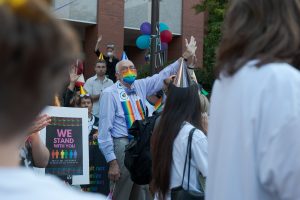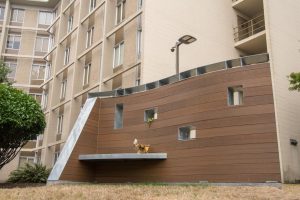Cultural engagement around the world
SPU’s study abroad program allows students to experience new cultures
February 26, 2020
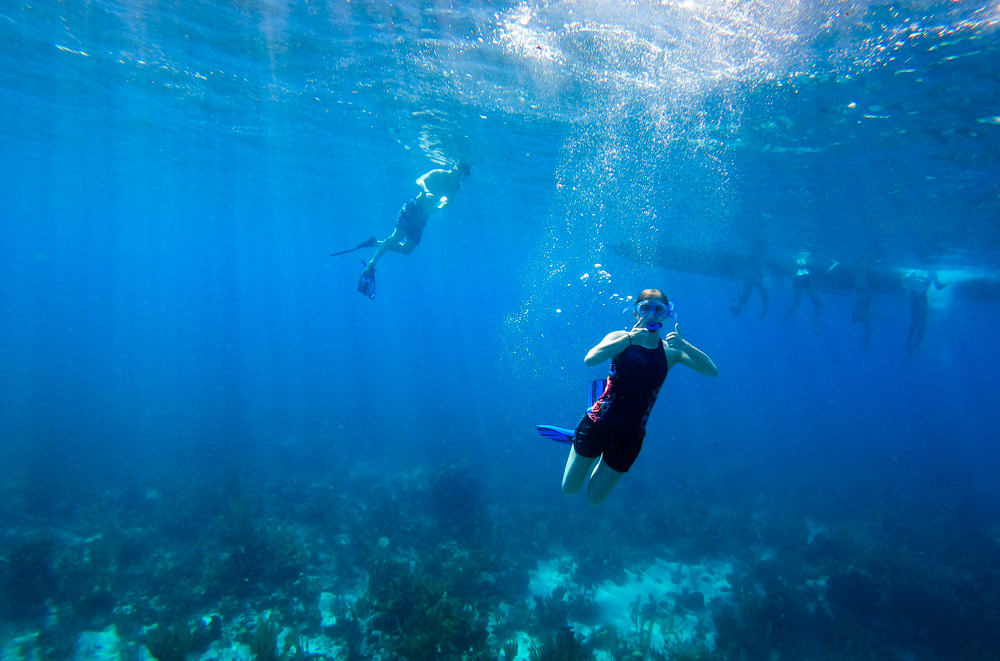
Snorkeling locations changed each day so students could see different development stages and biodiversity of the reef, from the boulder zone to reef crest.
Diamond Tate is surrounded by her friends and host family as she celebrates her birthday. She gets the opportunity to celebrate with many of the friends that she has made on her trip thus far. She feels pure elation, surrounded by new friends who she loves.
“I wanted to study in Costa Rica because I thought it would be a great place to practice cultural studies. Being here has been a great experience, getting to see the island (Costa Rica as a whole) and connecting with all these new amazing people has been incredible,” Tate shared in a phone interview.
Students at Seattle Pacific University explained that their trips abroad have introduced them to new cultures and helped broaden their perspectives on the world, and even on the social climate back home in the United States.
Janessa Fong, a third year student double-majoring in clinical counseling psychology and Asian studies, with a minor in youth ministry, shared about her experience at Korea University (KU) in Seoul, South Korea. She studied there during the 2019 fall semester.
Her transition to life in South Korea was smooth and she was able to acclimate to the new environment quickly.

Guides and professors take students out on daily snorkeling trips, some crew members stay on the boat and are available to help anyone with gear or seasickness.
“I had some Korean friends growing up and they taught me the language. I learned some phrases and they also got me into the music culture and the TV shows, so what I learned from them cushioned my culture shock and it wasn’t as bad,” Fong said.
Tate is currently on a yearlong trip studying in Costa Rica and described her experience living there as similar to the U.S.
Tate explained that living in the city has made her transition to the new environment smoother and, because of this, she has not experienced much culture shock.
Tate shared that she is originally from Texas and moved to Seattle for college. This experience has helped her to easily adapt to new places.
She also explained that living in the city is very reminiscent of her life in Seattle.
“I think it’s more similar to the U.S. than I was expecting, especially living in the city … There are at least 8 fast food restaurants down the street to my university, so it feels a lot like home,” she said.
Tate also shared that for the most part, the culture is similar to that of the U.S. although there were a few aspects that surprised her.
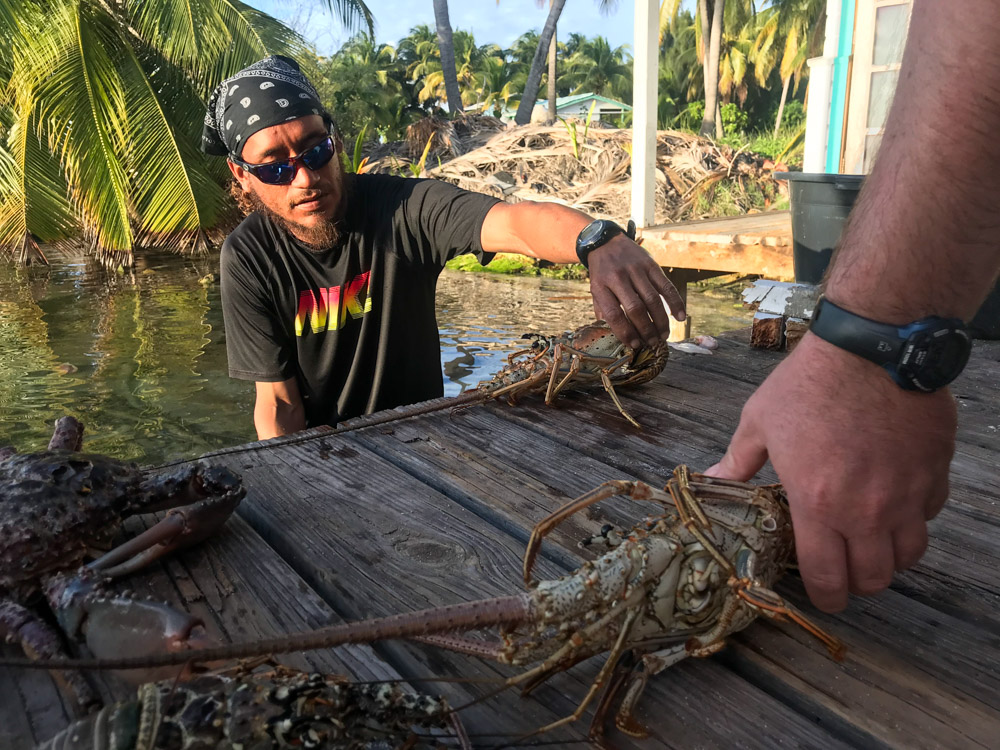
A local fisherman harvests spotted spiny lobsters. Frequently the catch of the day ended up being a part of students dinner.
According to Tate, it is more common for mothers to take sole responsibility of tasks such as cooking and cleaning. Tate considers herself an independent person, and being part of a homestay program, this dynamic has taken some getting used to.
Fong explained that while she experienced little culture shock during her trip, she faced struggles when reacclimating to the United States upon her return.
“I think coming back here was very shocking, and made me more aware of the [racial] discrimination I have lived through up until now,” she said.
She also shared that since her return to the U.S., she has felt uncomfortable at times.
“It [returning to the U.S.] was the biggest shock for me because living in a homogeneous society for four months showed me what it’s like to not be discriminated against, and that was very comforting,” Fong said.
Both Tate and Fong shared that their experiences allowed them to connect with people from cultures other than their own, and expressed the importance of these relationships.
“There are a lot of opportunities to meet and get to know new people. It’s been cool to establish new relationships,” Tate said.
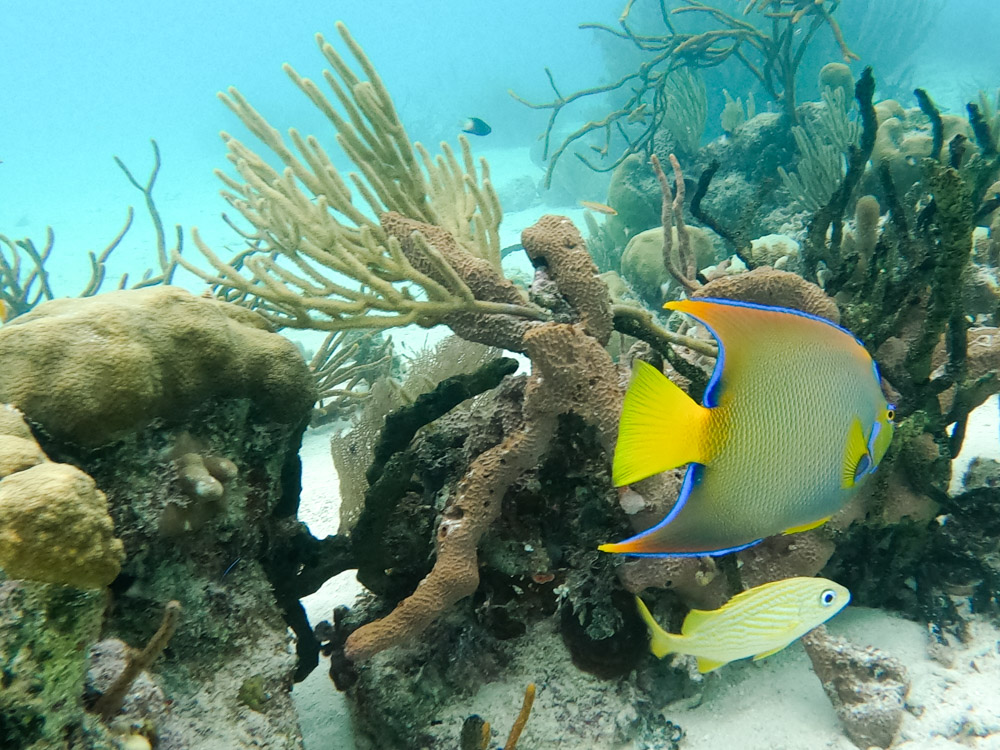
A French Grunt and Queen Angelfish coexist on the reef.
Fong shared that meeting others is what broadened her perspective on the world.
“It was very interesting, I don’t think I expected to meet so many different people from so many different places. I think that was a highlight, getting to meet all these people and learn about their cultures as well,” she said.
The students also shared the importance of studying abroad, and encouraged others to take the opportunity to study abroad as well.
For Fong, that time abroad can facilitate personal growth.
“If people can, go to a non-english speaking country. I think going to a non-english speaking country is one of the biggest challenges you can face and it helps open up your mind and broaden your perspective on so many things,” she shared.
Similarly, Tate explained that getting to spend time with her host family and the other students in the program has allowed her to connect with a culture outside of her own.
Ultimately, the students expressed their gratitude for their trips abroad and are thankful for the value the time has added to their lives.
“It was great getting to learn so much about other people and their cultures and how we differ,” Fong said.


















































































